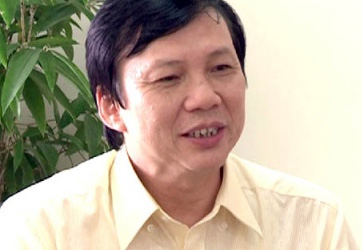Professional ethics of journalism enshrined in Press Law 2016
 |
One of the new clauses in the Press Law 2016 is that, for the first time, journalists’ professional ethics are officially regulated by law. Could you elaborate on this?
Unlike most other social, political, and professional organisations, the role of Vietnam Journalists Association (VJA) is now embedded in the Press Law 2016. This is an important new step highlighting VJA’s role and position in the country’s social and political life.
The main functions of Vietnam Journalists Association regulated in the Press Law 2016 include protecting the legitimate rights and interests of all VJA members, contributing input for strategies, plans, and policies on press development as well as other legal documents in news media. VJA takes charge of issuing and overseeing the implementation of regulations on journalists’ professional ethics and improving ethics and press skills for all its members.
Is it true that VJA’s regulations on journalists’ professional ethics are already enforced?
Though professional ethics were not regulated in the previous Press Law, this is a unique profession which has a huge impact on society as a whole. Therefore, VJA enacted regulations on professional ethics for Vietnamese journalists which consist of nine clauses. Due to the press’ vigorous pace of development, the amended Press Law 2016 encompasses a number of regulations which clarify rights relating to the freedom of speech, freedom of press, and access to information of all citizens, which were regulated in the 2013 Constitution. This is important to allow amendments and supplementations to current regulations.
At present, press branches and inter-branches across the country have been asked to contribute to the penning of new regulations on journalists’ professional ethics, making it congruent to the Press Law, reflecting the rights of the journalist as well as those of the general public.
In reality, several press agencies have been delivering information in an improper manner in a bid to attract readers. Does this violate professional ethics?
Such actions violate not only professional ethics, but the Constitution and the Press Law 2016. Particularly, in light of the 2013 Constitution, everyone has the right to personal secrets, family secrets, and inviolability in their private life. The Press Law 2016, which will take effect from July 1, 2017, forbids the publication and transmission of information relating to personal life, unsubstantiated stories causing social unrest or information going against Vietnamese habits and customs, among others.
Under the new Law, press agencies are also banned from delivering incorrect information, offending the reputation of organisations, the honour and human dignity of individuals, or making accusations against organisations and individuals when court verdicts have yet to be released.
These regulations will help steer press agencies towards the right path by avoiding cases where, to increase readership or attract advertisement, unhealthy and sensational information is published.
| RELATED CONTENTS: | |
| Building a win-win partnership | |
What the stars mean:
★ Poor ★ ★ Promising ★★★ Good ★★★★ Very good ★★★★★ Exceptional
Latest News
More News
- Vietnamese businesses diversify amid global trade shifts (February 03, 2026 | 17:18)
- Consumer finance sector posts sharp profit growth (February 03, 2026 | 13:05)
- Vietnam and US to launch sixth trade negotiation round (January 30, 2026 | 15:19)
- NAB Innovation Centre underscores Vietnam’s appeal for tech investment (January 30, 2026 | 11:16)
- Vietnam moves towards market-based fuel management with E10 rollout (January 30, 2026 | 11:10)
- Vietnam startup funding enters a period of capital reset (January 30, 2026 | 11:06)
- Vietnam strengthens public debt management with World Bank and IMF (January 30, 2026 | 11:00)
- PM inspects APEC 2027 project progress in An Giang province (January 29, 2026 | 09:00)
- Vietnam among the world’s top 15 trading nations (January 28, 2026 | 17:12)
- Vietnam accelerates preparations for arbitration centre linked to new financial hub (January 28, 2026 | 17:09)
















 Mobile Version
Mobile Version